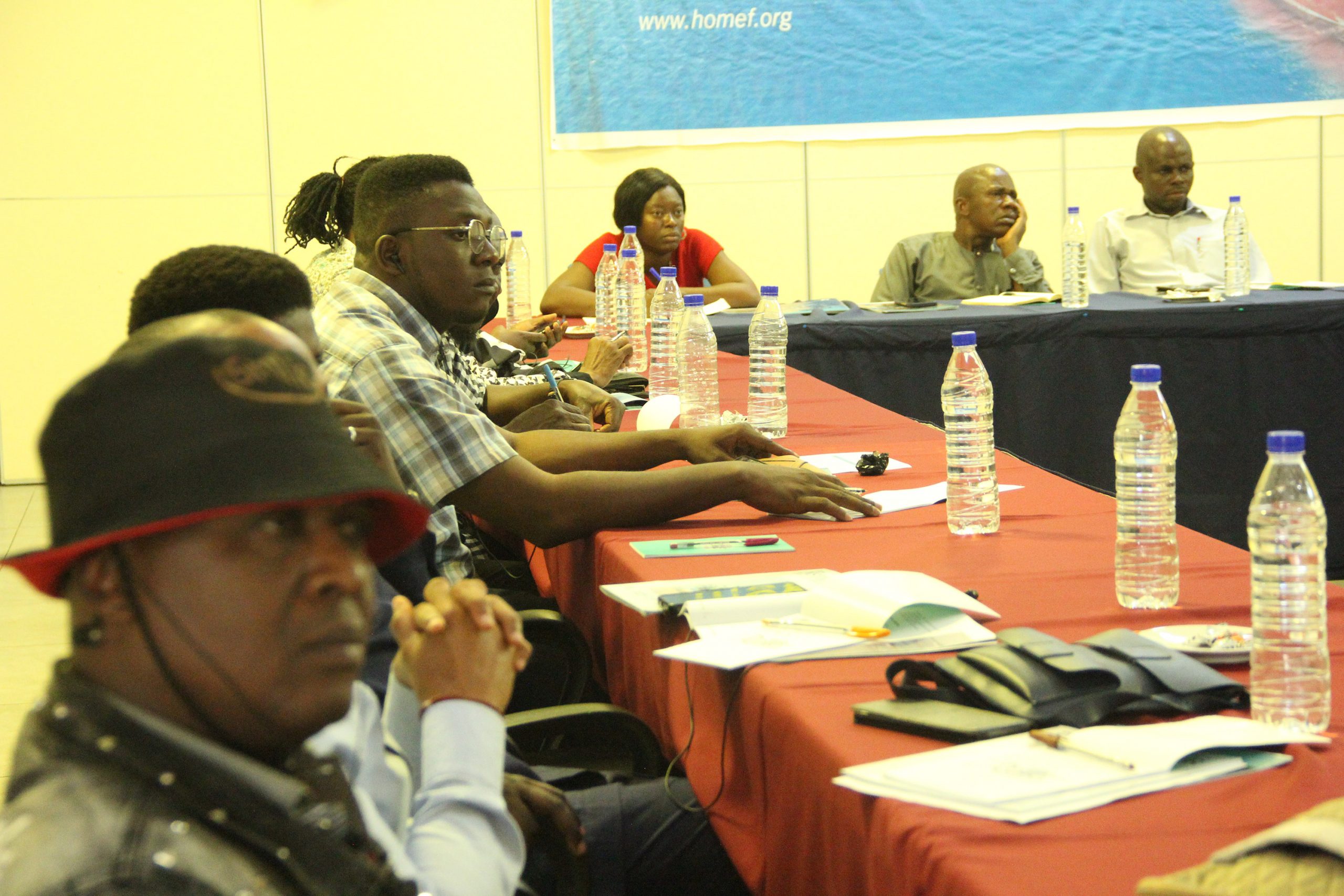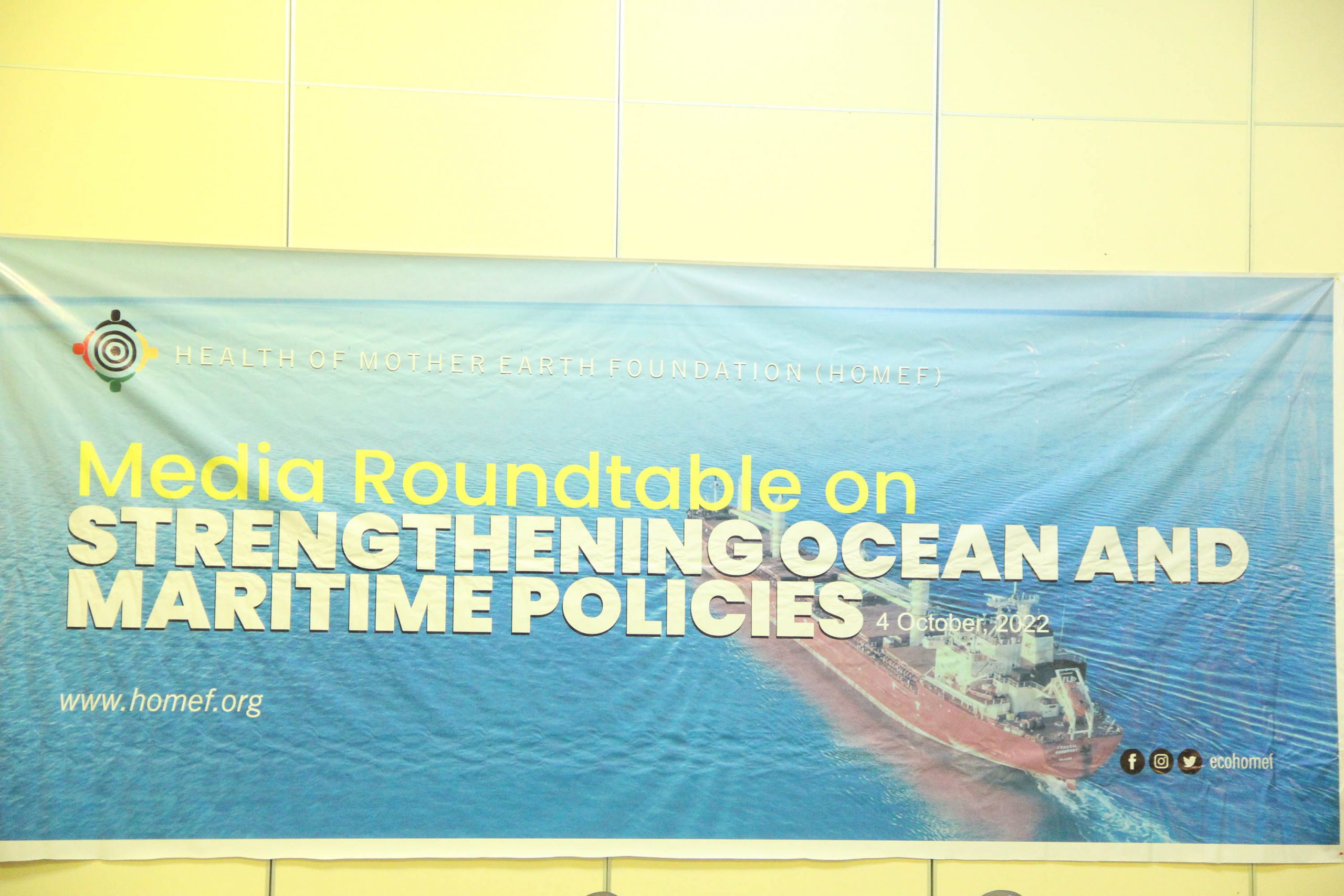A Media Round table on Strengthening Ocean, Human Rights and Maritime Policies was recently held with critical media stakeholders in Lagos, Nigeria. Participants resolved to set the agenda for the protection of ocean and human rights, amplifying local voices, exposing the underlying issues affecting the ocean and interrogating relevant government policies.
Prof. Nenibarini Zabbey a lecturer at the University of Port Harcourt and Coordinator of the Centre for Environment, Human Rights and Development, during his presentation gave a broad analysis on the Health of the Niger Delta Coastline and Inland Waters. He stated that the Niger Delta has four geomorphic zones stretching from Benin River to the Opobo Channel, and has the fifth largest mangrove forest globally.
According to Zabbey, “Unless the coastal fishes are protected, we are wasting our time with aquaculture fishery. Aquaculture cannot save us. More so, there is taste in the diversity of the wild. The waters are highly compromised by human activities, ecosystems are fast degrading, high loss of biodiversity, loss of livelihoods, increasing vulnerability to the impact of climate change, weakening resilience, and driving maladaptation, including oil theft, artisanal refining, and obnoxious fishing practices. There are factors affecting the health of the waters which include pollution, municipal waste, ineffective and inefficient sewage disposal, hazardous emissions from industries and biological wastes from hospitals, invasive species, deforestation, land reclamation and conversion, upstream built infrastructures (dams along the Niger River), and dredging and sand mining.”
He further spoke on the threatened critical ecosystems of the Niger Delta’s inland and coastal environment , “mangroves serve as breeding home for fish, provide ornamental resources, food, fiber and fuel, among other functions but the mangroves are threatened by over exploitation, oil pollution, reclamation and conversion, dredging and channelization, invasive nipa palm. Oil pollution, from operational causes and artisanal mining, are undermining the health of the water bodies.”
Philip Jakpor, the Director of Programmes, Corporate Accountability and Public Participation Africa (CAPPA) spoke on Oceans, Energy, and the Future we Want “Respect for human rights in port-city relations and within port cities is an essential dimension of social sustainability. Some human rights issues that arise in port cities include unmanaged waste, serious socio-economic and environmental challenges faced by the majority of the population also unimaginable volume of crude oil spilled into the ocean during exploration and exploration results in the destruction of aquatic life,” he said.
In a virtual presentation, Mr. Francis Omiunu, a legal and maritime practitioner, spoke on Ocean Protection: Engaging Maritime Laws in Nigeria and highlighted the importance of the ocean as well as the current threats facing the ocean. He listed regulatory institutions in Nigeria as including the Federal Ministries of Environment, Agriculture and Transportation, respectively as well as agencies such as NIMASA, NOSDRA and NESREA whose respective functions and powers are derived from enabling laws and regulations. He noted that a “new government sometimes mean change of policies, and the need for the international laws when being domesticated by the National Assembly, are at least tweaked by the legislature to favour our local peculiarities and outlook, which depends on the said international instrument.”
While exposing participants to the role of the media and civil society organizations in the protection of the environment and ocean, HOMEF’s Media/Communications Officer Kome Odhomor explained the role the media in creating awareness on the wellbeing of the ocean, the abuse it faces and how it can be protected. She urged the media to consciously engage in continuous education of the public through the use of various cartoons, feature stories, pictorials and editorials.
Stephen Oduware of HOMEF explained that CSOs have a lot to do in ensuring that human rights are respected in the ocean economy. They campaign for the change or revision of policies, organise policy dialogues and build public awareness, on environmental harms.







